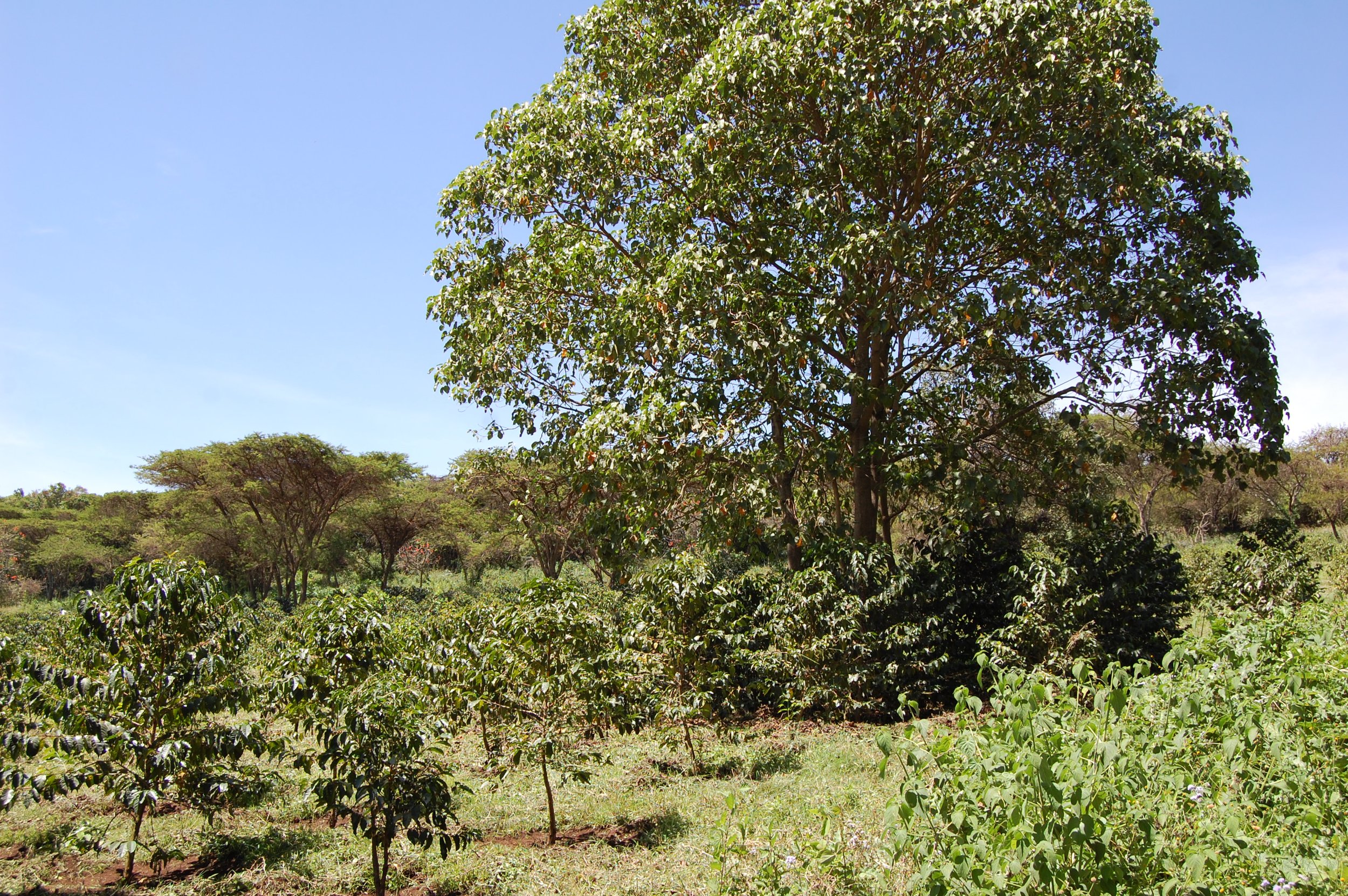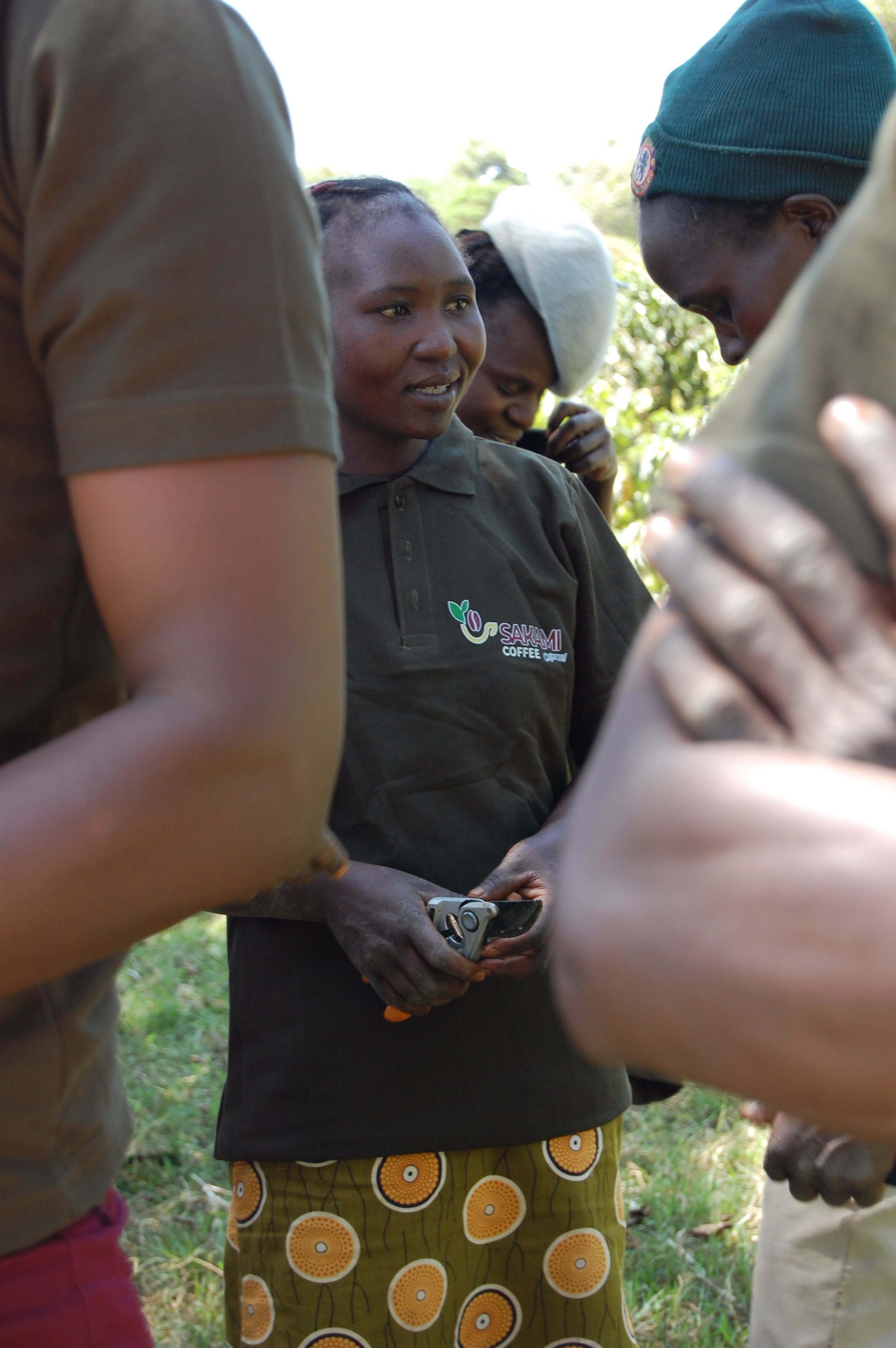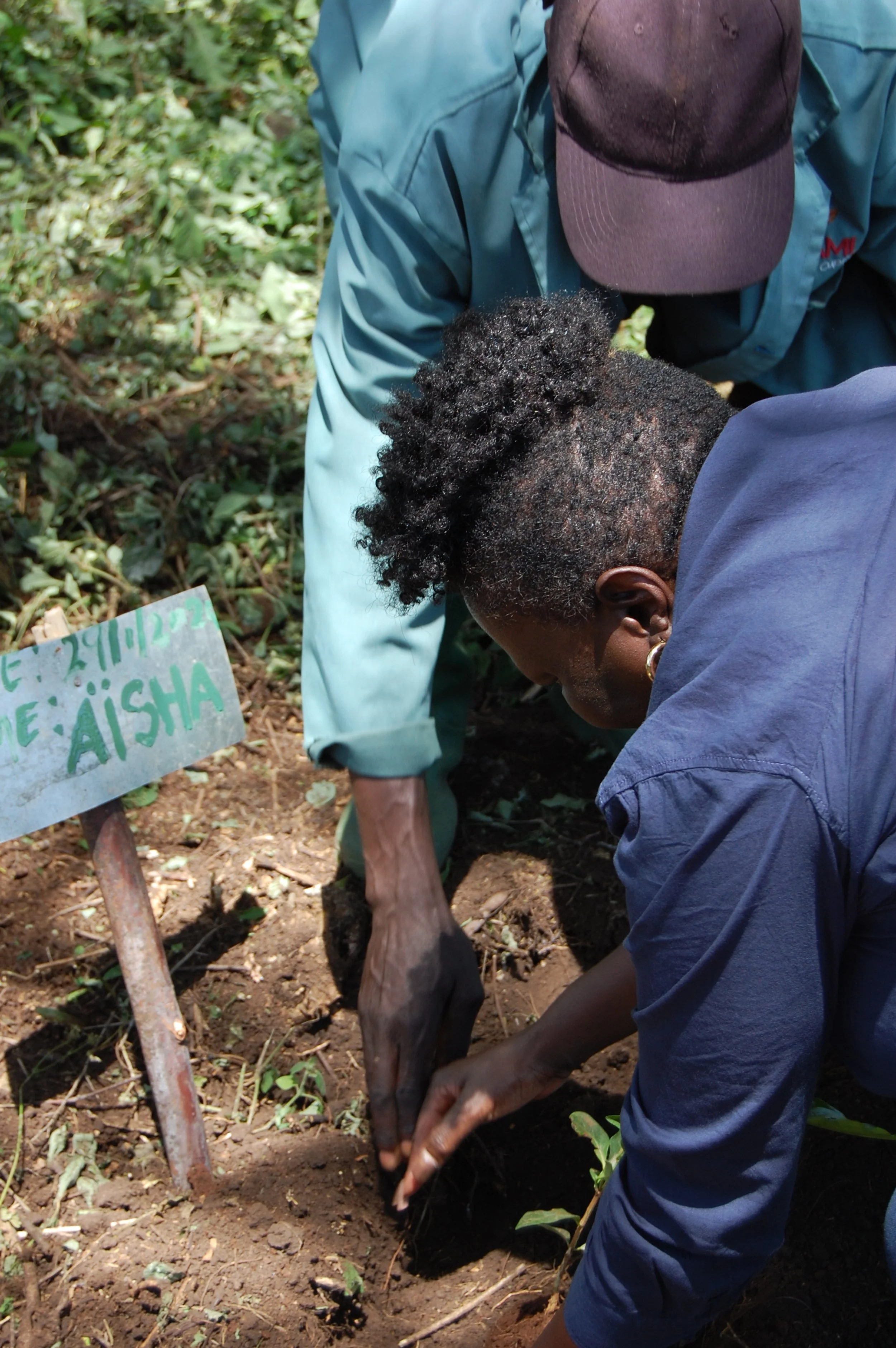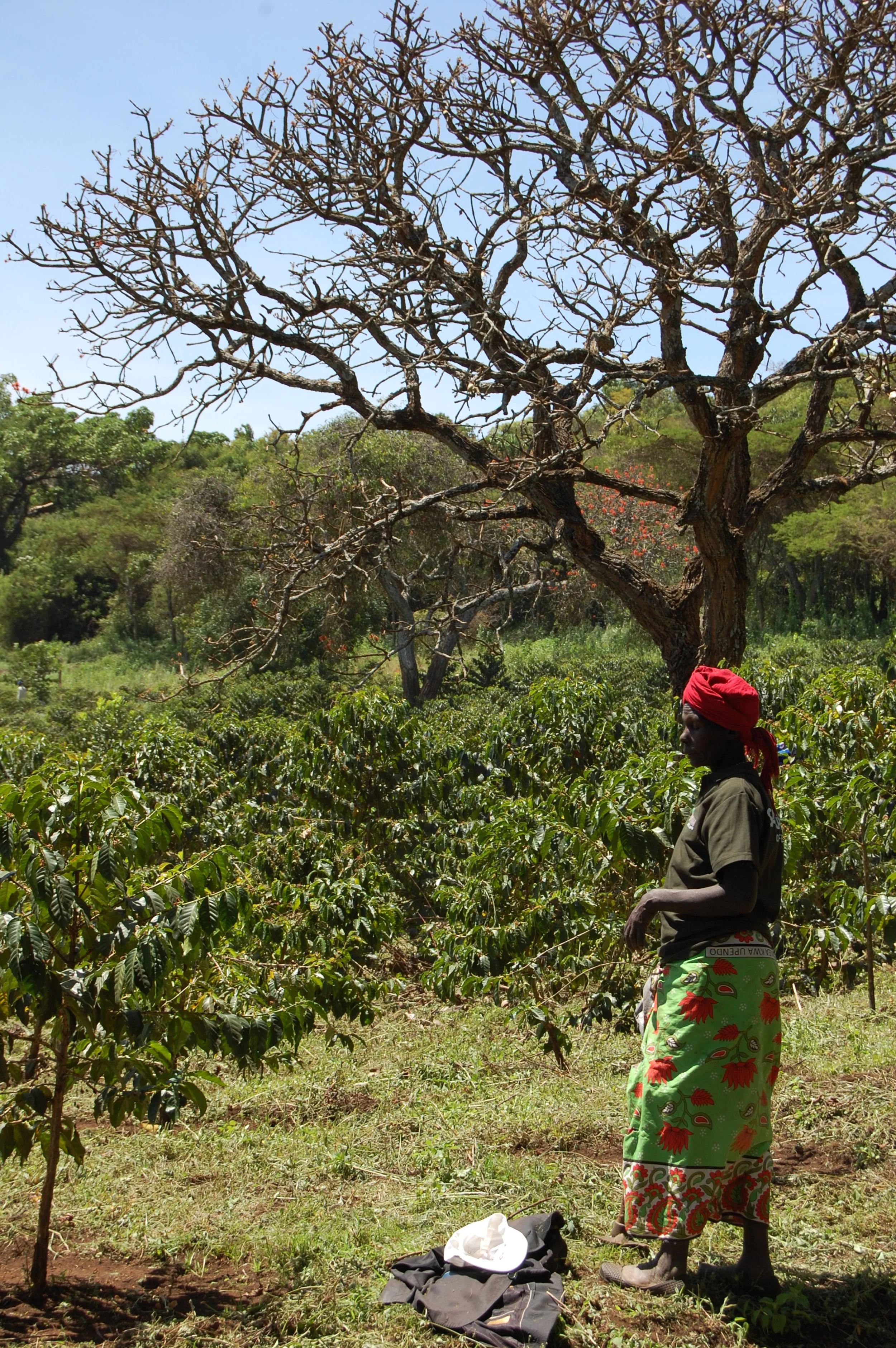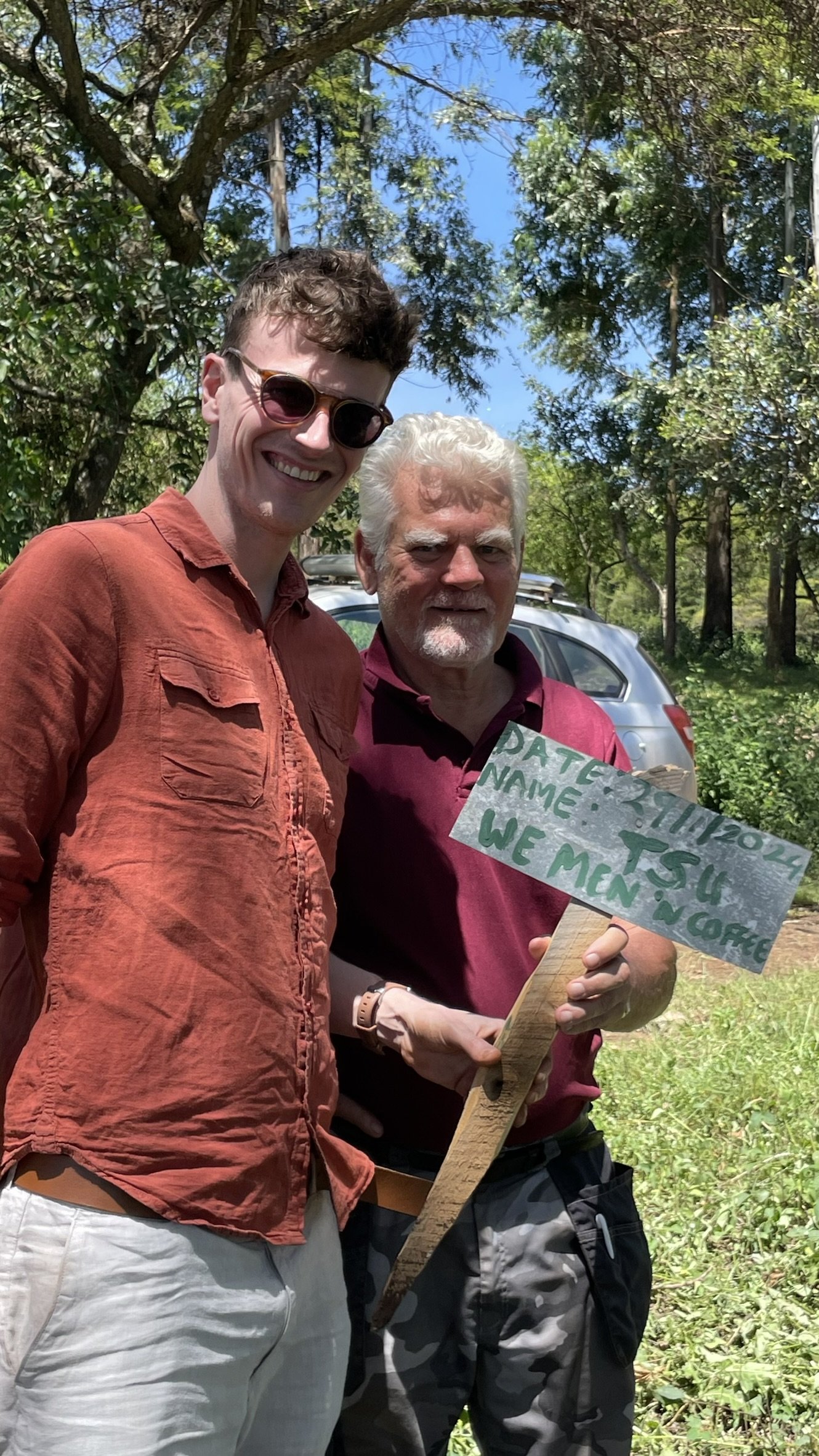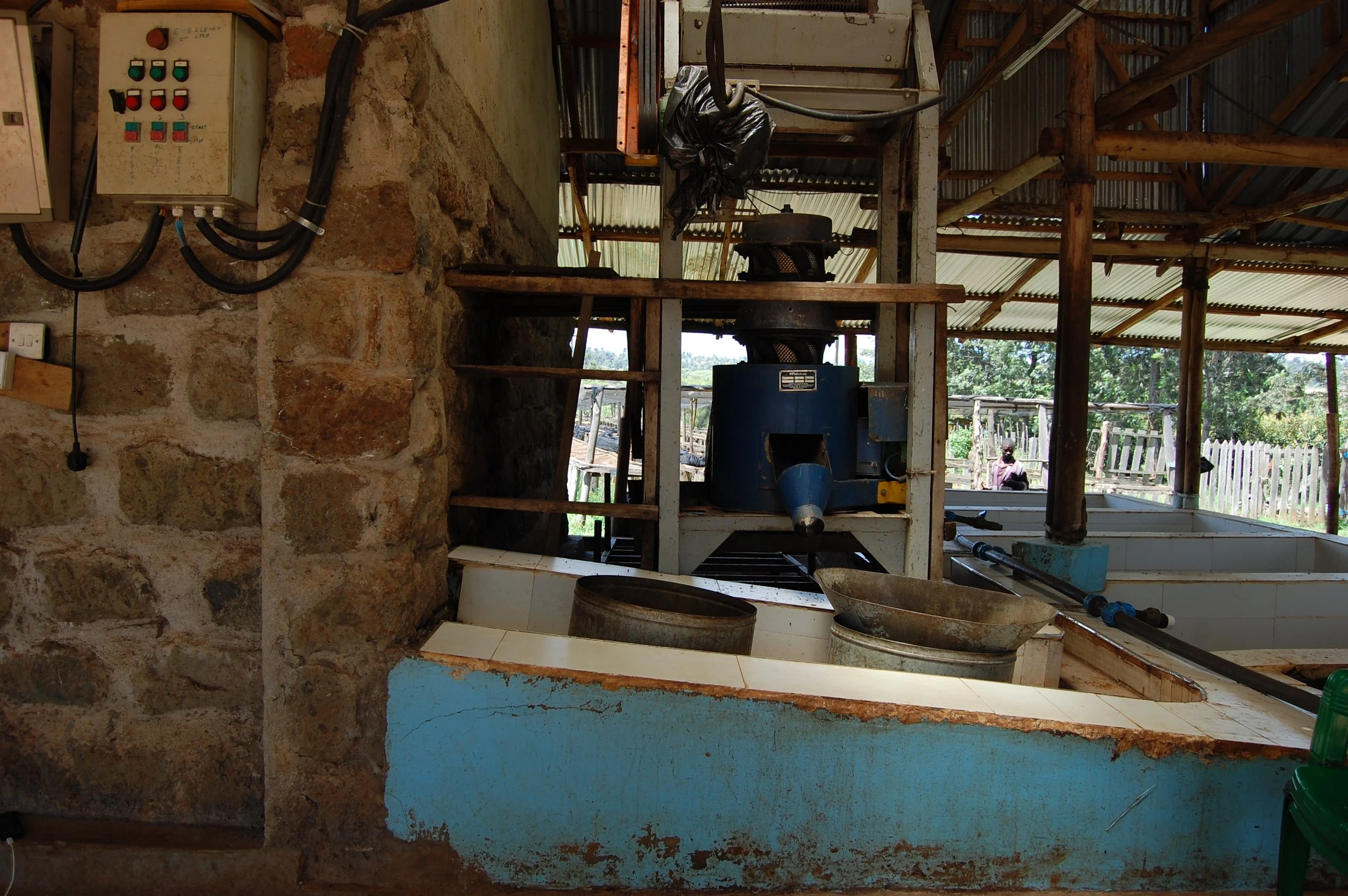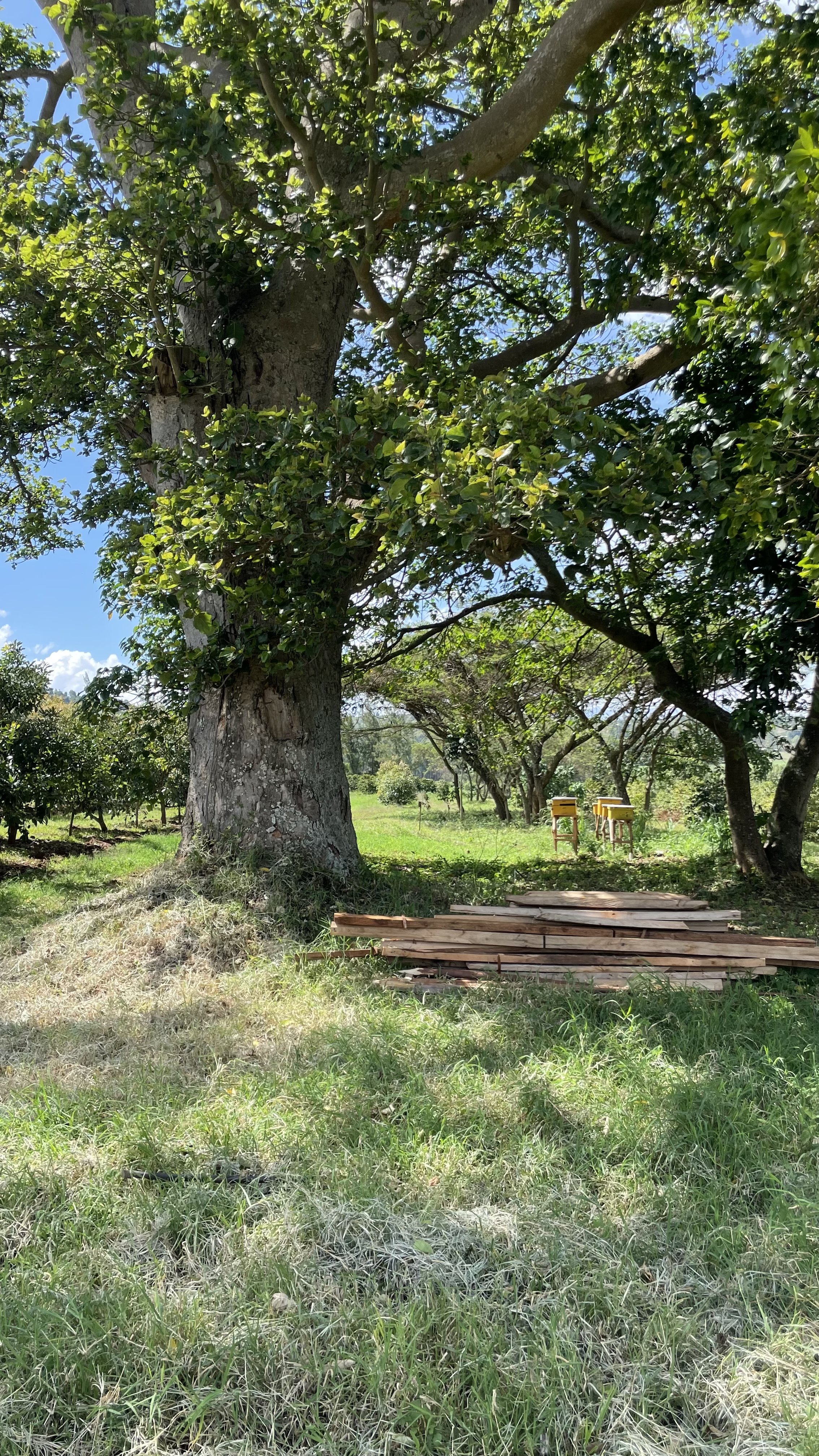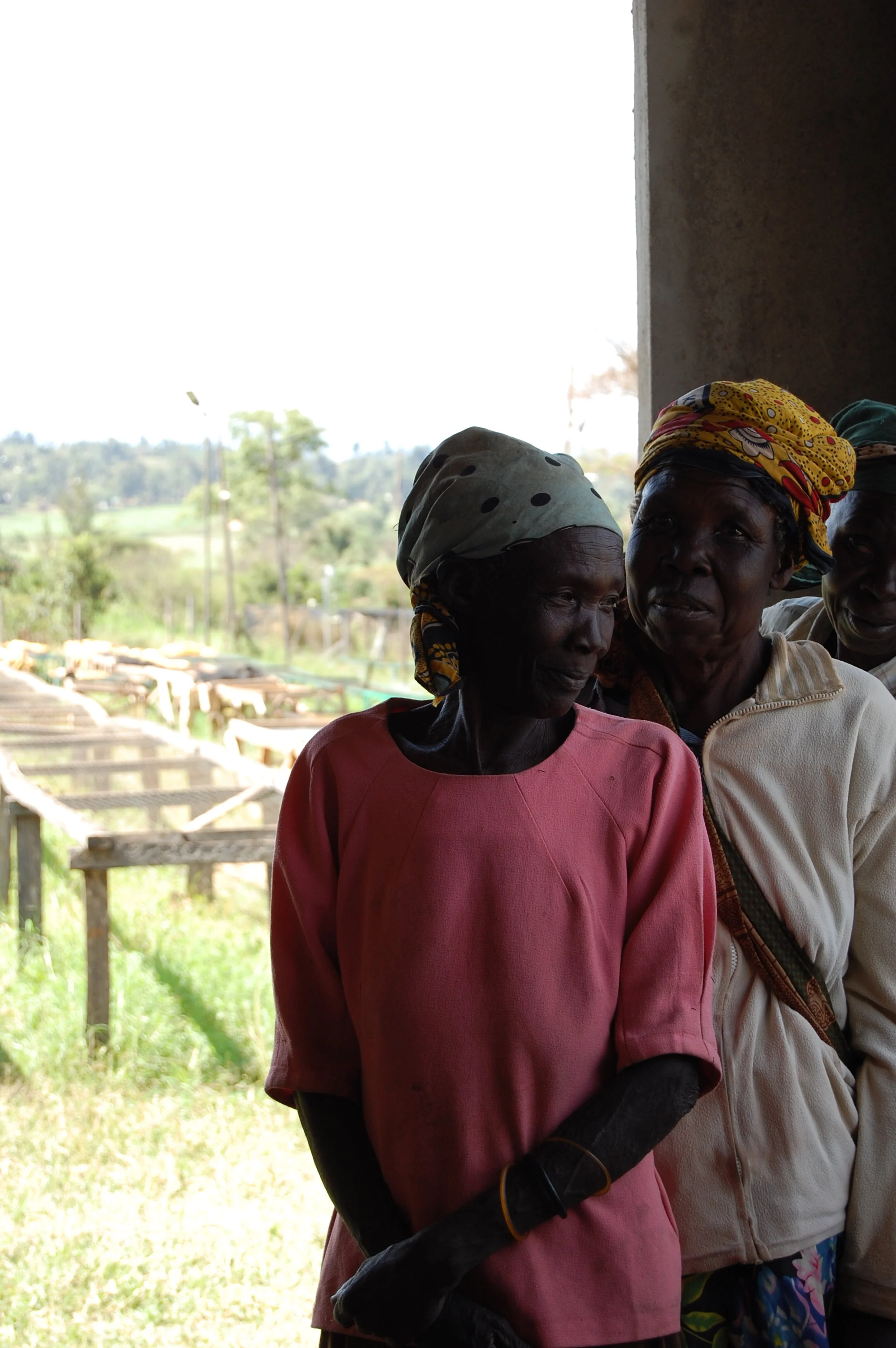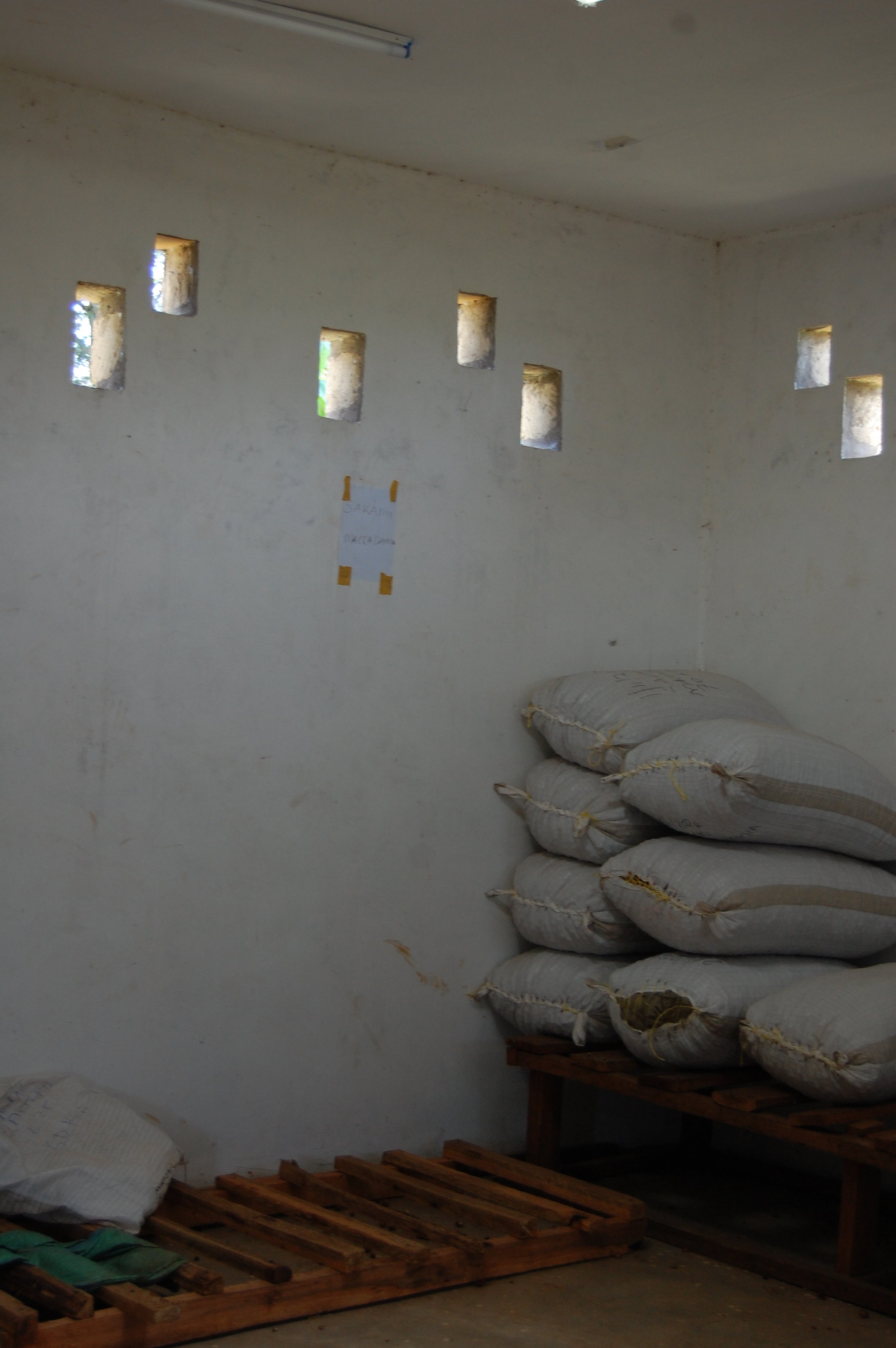A FLAME THAT SPREAD ACROSS CONTINENTS
Gloria used to work in the beauty industry doing international shows, organizing events and essentially bringing people together. She owned a beauty saloon and also worked as a make up artist for movies. Around the same time through this industry, she met Jarmo who was working as an engineer for the Finnish Government doing projects in Africa especially Kenya. When their paths crossed, they started dating eventually got together. They were looking to buy a house and got an offer with a farm that came along with it. Jarmo had done a couple of projects in Rwanda and had learnt more about growing coffee because of it. If they were to buy this house with the farm, he was interested to plant coffee as one of the cash crops. Jarmo had also heard about farmers growing macadamia and that was intercropped with coffee! Gloria’s introduction to coffee dated back to when she was a child. She hailed from a coffee family that was rather scared about the moment of day in which the first coffee would be consumed. She and her sisters would spend waking hours brewing coffee for the whole family to enjoy, especially her brother who was particular about how he would like his coffee.
Both Gloria and Jarmo wanted to plant crops that could be sustainable for a long term if they went through with this idea, not to mention they were in peak of their respective careers until then.
It was clear that coffee had made it’s way into the Gummerus household as their obvious choice but there was still one big problem. The didn’t exactly have a market for the coffees they were interested to grow and the local market was fairly political for them to rely on it completely.
They planted their first trees in 2010 and Jarmo knew they had to find a market outside Kenya perhaps internationally. They were well aware they did not want to compete with big players. So, they didn’t want to trade in Kenya . As their coffees were growing, they started their next quest - to find a viable market. They began going to coffee expos to hand out samples to potential buyers, only to notice some of them would have left these sample bags behind without caring much for it!
It was all not gloom and doom because it was in one of these shows, Gloria and Jarmo met Lennart for the first time in 2013 (Rimini World of Coffee). Though much didn’t come out of this meeting, Lennart still had left his then business card with Gloria. Years passed, Gloria and Jarmo were still making the rounds, learning the coffee language and scouting for a reliable market outside Kenya. In 2016, Lennart crossed paths again with Gloria’s coffee except this time it was a sample sent by Joonas, a Finnish roaster who was a friend of Jarmo.
In the beauty industry most of the skills were always self taught, and for Gloria, coffee wasn’t far from it. She was taking courses to learn about cup quality, exporting, setting up a company among other things. During a farm to cup exhibition organized by AFCA in Kenya in 2020, Gloria met Maarten. Quick with her charms and wit, Gloria managed to convince Maarten to join a closed room cupping to taste some of her coffees. This attempt worked well in their favor, Maarten really liked some of her coffees, took some samples before he flew back to the Netherlands. But, it still didn’t guarantee a business since Kenya’s reputation for corruption preceded it’s coffee and it made Lennart hesitate to take the leap.
Later that year Gloira found an export opportunity to the Netherlands and she wanted to use it to consolidated the coffees to This Side Up which worked out in both our favors. It was settled then, Gloria’s coffees were flying across the continent! And thus began the Kenyan alliance between Sakami and This Side Up that has been turning a spark into a blazing flame!
CULTIVARS
Ruiru 11, Batian, SL28, K7
elevation
1800 meters
NOTABLE
Around 50 women working in Gloria’s farm having been trying to register as an official group that can leverage the power of the community to create improved accessibility to credit and other resources. Each month they set aside some contribution from each member and will wait until they have reached 10,000 shillings that can be deposited to officially register. Gloria serves as an inspiration for women around her since they see how she conducts her business. Next to this the Sakami farm is creating agroforestry by intercropping macadamia trees between coffee, protecting all indigenous trees in and around the farm, as well as the wetland by not interfering on it, leaving natural bush sections in and around the coffee trees, having beehives around the farm, and avoiding the use of pesticides or herbicides. All "waste" such as coffee pulp and macadamia husks are fed to earthworms and worm castings are returned back to the field as manure or used to make foliar feed. Water from pulping and washing the coffee is treated in a settling pond with lime and then used to irrigate the pasture below the ponds. Next to all this, Sakami uses mineral fertilizers to replace the nutrients taken away when harvesting cherries
PROCESSING
Only fully ripe cherries are accepted for pulping, each cherry is hand picked by our dedicated women, up to over 100 during picking season. All this is done at our farm and only dry milling is so far done with commercial millers. In near future Sakami intends to get dry milling equipment at the farm, to have 100% control of each green bean leaving the farm and being able to offer full growing and processing information for each bag.
TASTIFY™ CUPPING NOTES
2024 HARVEST
-
The price you pay for Gloria’s washed and natural coffee p/kg. We agreed on this price directly with the farmers, disregarding the volatile US Coffee C price.
Other coffees by Gloria and Jarmo are priced higher, in accordance with the added effort of processing naturals, anaerobic coffees and different grades.
-
Since 2024 the new regulations in Kenya, coffee moves differently through the value chain. Here farmgate refers to the FOT contract Sakami farmers have received for their produce that also includes freight charges to drive it to the milling facility. The representative pie chart is for the batian washed AA coffees. This price covers farm gate and other costs farmers have incurred until dry parchment stage.
Other contracts from Gloria’s farms are as follows :
Sakami - Gloria single farmer lot - batian washed AB : € 7,71
Sakami - Gloria single farmer lot - sl28 washed AA : € 8,48
Sakami - Gloria single farmer lot - sl28 washed AB : € 7,90
Sakami - Gloria single farmer lot - natural sl28 : € 8,48
Sakami - Gloria single farmer lot - natural batian : € 8,48
Sakami - Gloria single farmer lot - anaerobic natural : € 8,86
Sakami - Gloria single farmer lot - ruby red washed AA : € 8,10
Sakami - Gloria single farmer lot - ruby red washed AB : € 7,71
-
The coffee is then taken to the milling facility where farmers are charged for the milling, bagging them in grain pro. Additionally an export supervision fee is included in this category to capture the reality of having our partner Stean in cooperation with our farmers oversee the milling process. A standard fee that is split across the entire volume is added to the exporting costs.
-
International shipping from Mombasa, Kenya to Rotterdam, Netherlands. It is inclusive of freight, customs, insurance and warehousing costs.
-
Average financing cost owed to (mostly social) lenders. This ensures immediate payment to the farmers when the coffee leaves the farm or port.
-
A standard TSU premium on all coffees designated exclusively to accelerate farmers’ own regenerative agriculture project..Read more about the regenerative projects done by Sakami here. (Link coming soon).
-
This Side Up compensation for spending time and resources importing this coffee. Our work includes year-round contact with producers, managing export, shipping, import, warehousing, grading, sampling, finding and keeping roasting partners for Sakami. € 1,65 is This Side Up’s Model 1 markup. For a full overview of our modular margin construction, see the Trade Models page





